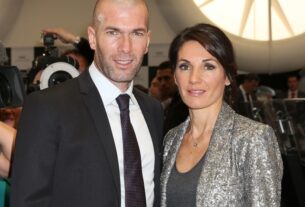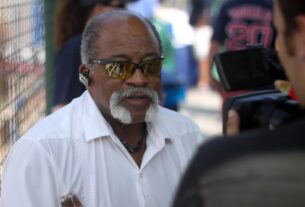Ethel Kennedy, the widow of Robert F. Kennedy, chose not to remarry following her husband’s tragic assassination in 1968. Her life since then has been marked by her devotion to family, her commitment to public service, and her enduring role as a central figure in the Kennedy legacy. Here is a detailed exploration of her life post-1968, the reasons behind her decision not to remarry, and her contributions to both her family and society.
Life After Robert F. Kennedy’s Death
When Robert F. Kennedy, then a U.S. Senator and presidential candidate, was assassinated on June 5, 1968, Ethel was left to raise their 11 children alone. At the time, she was 40 years old and pregnant with their youngest child, Rory. This immense tragedy added to the string of losses suffered by the Kennedy family, following the assassination of her brother-in-law, President John F. Kennedy, in 1963.
Despite the grief, Ethel took on the role of a single mother with resilience. Her life became deeply focused on raising her children and keeping her husband’s legacy alive through various social and humanitarian efforts. She founded the Robert F. Kennedy Center for Justice and Human Rights, an organization dedicated to advancing the causes her husband championed, including social justice, civil rights, and human dignity.
Why Did Ethel Kennedy Choose Not to Remarry?
There are several factors that likely influenced Ethel’s decision not to remarry:
- Enduring Love for Robert F. Kennedy: Ethel’s deep love and commitment to her husband remained a significant part of her life even after his death. She frequently spoke of Robert with great admiration, describing him as not just a husband but a guiding force in her life. Her decision not to remarry can be seen as a continuation of her loyalty to him and the love they shared.
- Strong Catholic Faith: Ethel’s upbringing in a devout Catholic family and her personal faith likely played a role in her decision. The Catholic Church’s teachings on marriage and the sanctity of lifelong partnership may have influenced her to remain a widow and continue honoring her marriage vows, even after her husband’s passing.
- Commitment to Her Children: With 11 children to raise, Ethel was dedicated to being a central figure in their lives. She took on the responsibility of guiding them through the various challenges that the Kennedy family faced, including public scrutiny, political pressures, and personal tragedies. Her children often described her as a loving and supportive mother, committed to their upbringing and to keeping the family close-knit.
- Focus on Public Service and Activism: After Robert’s death, Ethel directed much of her energy toward continuing his work. Her activism and involvement in social causes gave her a sense of purpose, filling the void left by her husband’s death. Through the Robert F. Kennedy Center for Justice and Human Rights and other philanthropic efforts, she kept his memory alive, advocating for issues like human rights and social justice.
Ethel Kennedy’s Role as a Matriarch
As a mother and grandmother to one of America’s most prominent families, Ethel became a matriarchal figure who helped preserve the Kennedy legacy. Her resilience and commitment to family unity provided a stabilizing force amid the tragedies that have marked the Kennedy story. Throughout the years, she has remained actively involved in the lives of her children and grandchildren, often seen attending family events and supporting their political and philanthropic endeavors.
Ethel’s choice to remain unmarried and focus on her family has had a lasting impact on the Kennedy family dynamics. Her home became a gathering place where the extended family would come together to celebrate holidays and significant milestones, fostering a strong sense of unity.
Philanthropy and Continuing Robert’s Legacy
Ethel Kennedy’s life after 1968 has not just been about family; she has also made significant contributions to public service. The Robert F. Kennedy Center for Justice and Human Rights (now known as Robert F. Kennedy Human Rights) has played a crucial role in promoting the values of social justice and human rights that Robert championed during his lifetime. The organization continues to support various causes, from advocating for the oppressed to addressing climate change, reflecting the broad scope of issues that concerned Robert and Ethel.
Additionally, Ethel has been recognized for her own humanitarian efforts. She received the Presidential Medal of Freedom in 2014, awarded by President Barack Obama, honoring her lifelong dedication to the ideals of justice and human rights.
Conclusion
Ethel Kennedy did not remarry after the assassination of her husband, Robert F. Kennedy, in 1968. Her decision reflects a combination of personal, religious, and familial factors. She chose instead to dedicate her life to raising her children, supporting her family, and continuing the social and political causes championed by her late husband. Ethel’s enduring legacy lies in her resilience as a widow, her role as a mother and matriarch, and her commitment to humanitarian work that has kept Robert F. Kennedy’s spirit and ideals alive for more than five decades.



